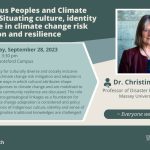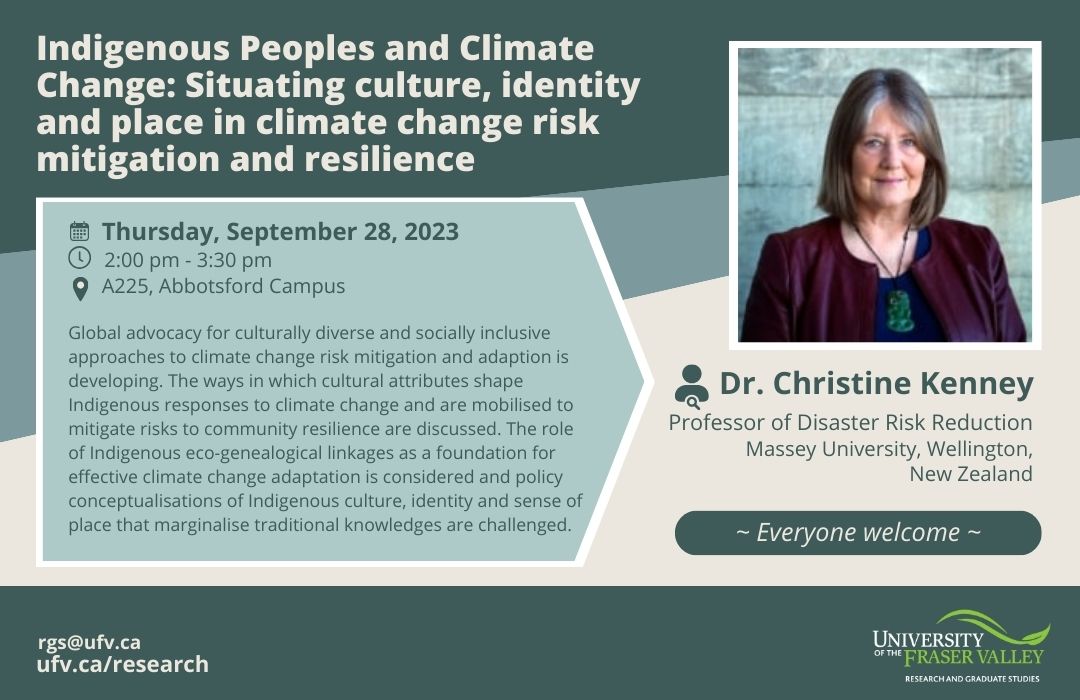
Global advocacy for culturally diverse and socially inclusive approaches to climate change risk mitigation and adaption is developing. The 2015 Sendai Framework for Disaster Risk Reduction, a prime exemplar, promotes policy recognition of Indigenous environmental management knowledges and practices. Yet, the inclusion of Indigenous climate change management techniques in policy frameworks has primarily been informed by the ‘etic’ gaze of Western European science, and comprehensive implementation strategies remain lacking. Socio-ecological systems theory is being drawn on to frame interpretations of Indigenous identity concepts, space places, and practices. How cultural contexts and linkages between Indigenous culture, identity, and place may be used to enhance climate change resilience are rarely considered, which has resulted in misunderstanding and misapplication of Indigenous knowledges pertaining to climate change mitigation. Current policy and research literature gaps are addressed by presenting and situating ‘emic’ perspectives and aspirations regarding Indigenous approaches to climate change adaptation. International exemplars of Indigenous initiatives are used to illustrate the effectiveness of culture-based approaches to climate change risk mitigation, adaptation, and resilience. The ways in which cultural attributes shape Indigenous responses to climate change and are mobilized to mitigate risks to community resilience are discussed. The role of Indigenous eco-genealogical linkages as a foundation for effective climate change adaptation is considered and policy conceptualizations of Indigenous culture, identity, and sense of place that marginalize traditional knowledges are challenged.
Professor Christine Kenney
Professor Christine Kenney is the inaugural Chair of Disaster Risk Reduction (DRR) at Massey University, and Director of Te Toi Whakaruruhau o Aotearoa, the national Māori Disaster Risk Reduction Research Centre. Her research and policy work encompasses issues pertaining to natural hazards, Indigenous Peoples, climate change, gender, health, terrorism, and humanitarian issues. Supported by the government, the Royal Society, of New Zealand, Toka Tū Ake EQC, and national CoREs, she co-leads the National Science Challenge rural resilience research program, Marsden research on Māori disaster recovery and Auahatanga Pungapunga the Endeavour programme on economic resilience. Her broader expertise encompasses work in North America, Asia, Canada, Australia, and the Pacific and she regularly works with the World Health Organisation and United Nations agencies, notably UNDRR, UNESCO, and UNOCHA. Professor Kenney has recently chaired the UNDRR/International Science Council Disaster Science caucus, she is a lead-author on the United Nation’s 2022 Global Assessment Report, and an informant to the 6th IPCC report.
Thurs, Sept 28
2-3:30 pm
Abby A225, Executive Boardroom
For more information, contact Leona Oakman at leona.oakman@ufv.ca
09/28/2023

